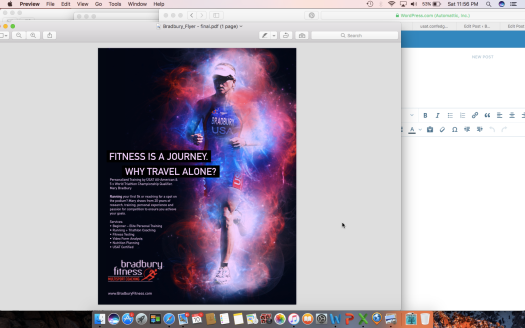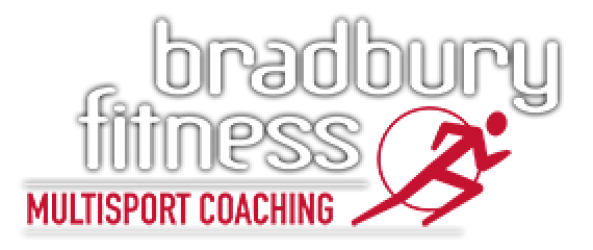1) Technique, technique, technique! If you don’t have sound technique in all 3 disciplines, you are doing yourself a huge disservice. And, the longer you train without it, the more difficult it will be to fix down the road. So many athletes work so hard, improve some, but then quickly hit a plateau. Then after struggling with a lack of progress, they finally turn to honing in on technique. Unfortunately, now that they have muscle memory with their current ways of doing things, technique improvement can become increasingly frustrating as it will most likely take much longer than had they worked on it first. Patience is not common with triathletes, so they often give up on this focus pretty quickly. 😦
2) There is NO extra credit in triathlon training. No matter how good you feel, putting in extra mileage and/or intensity can hinder future workouts and race performance, and can cause injury as well. I often hear clients say, ‘but I was feeling so good I just had to see how fast I could go,’ ‘I couldn’t help myself,’ or ‘the workout was too easy and I felt great so I pushed the pace.’ All workouts have a purpose, altering them affects the training plan. Keep the big picture in mind, not just the daily grind. You need to train smart to race fast!!! Would you rather win the workout or the race?
3) Rest and recovery are JUST as important as workouts. Without R&R, workouts won’t be as fruitful, nor will race performance. That being said, it’s not a green light to take a day off whenever you please. There are days when you’ll be tired and don’t feel like training. These are the days to suck it up and just do the workout. (Note, this is not the same as fatigue, nor is the advice).
4) Consistency is key. I’d much rather have athletes train 30 minutes daily than skip a few days and then put in several hours on the weekends. That’s a great recipe for injury and poor race performance. Due to life, a workout may be missed once in a while. Even so, don’t try to ‘make it up’ the next day in conjunction with the planned workout(s), at least not without permission from your coach, if you have one. Workouts should have a rhyme and reason from day to day and should be planned with specific intensities on specific days. Altering, missing, or swapping them can have major consequences. Again, check with your plan/ coach to ensure.
5) Be smart. You can train perfectly and do 100% of the workouts exactly as asked 100% of the time, but if you eat poorly, lack sleep, and are often stressed, you won’t train or race as fast as your potential. The more serious you are, the more seriously you need to consider these factors and adjust accordingly. I see lots of athletes ‘reward’ themselves with inadequate nutrition after races and workouts and/or eat more than usual. That’s ok to do on occasion, especially after an A race, but doing so regularly will hinder workout and race performance. Proper nutrition will help with recovery and help with future workouts and lead to a faster you!
6) Most athletes are good at training the body, but what about training your mind? You could be in the best shape of your life, but if you go into a hard workout or race with lots of doubt and ‘what ifs,’ you are shooting yourself in the foot. Take time daily to train your brain. Create some mantras, list some inspirational people, keep positive thoughts, think of great workouts you’ve put in the bank, sing positive songs, etc. Draw on all these during the next hard workout or race. I often go the extent of writing on my hand before a race. It’s all in secret code, but it all means something and helps me stay focused.
7) There is no such thing as the perfect athlete or perfect race. As serious of an athlete as you may be, a workout is still a workout, and a race is a still a race. Its results do not define you.
8) Expect the unexpected and know how you will deal with any issues ahead of time, from technical issues, to course changes, to weather. We all have to contend with unexpected issues from time to time, but if you are prepared to deal with them, you’ll be much better off. Tips: put air in your wheels prior to every ride (you’d be surprised how many triathletes don’t do this), ensure your brakes aren’t rubbing your wheels, know your course, always have extra goggles, be ready for inclement weather and train in it when its safe (suck it up here as we all have to race in less than ideal conditions from time to time), always carry an ID and money, etc.
9) Be a good sport. If you happen to have a poor workout or race, learn from any mistakes, take time to encourage others on and/or congratulate them, find something positive about your experience. There’s always something. If at a race, remember no matter how you did, you still got out there and put it on the line. You’re way ahead of other people. So smile no matter how much it hurts, stand tall, be proud, and set a good example to others.
10) Have fun!!! If you’ve lost the joy of it all, then performance is sure to suffer. Triathlon is a great sport, but it’s not for everyone. No sport is, so if you don’t like it, find something else you really enjoy and go for it!
Now, go enjoy your off-season…and work on your technique! 😉



